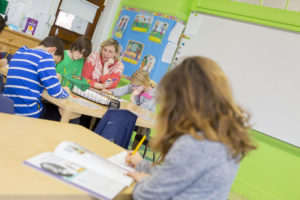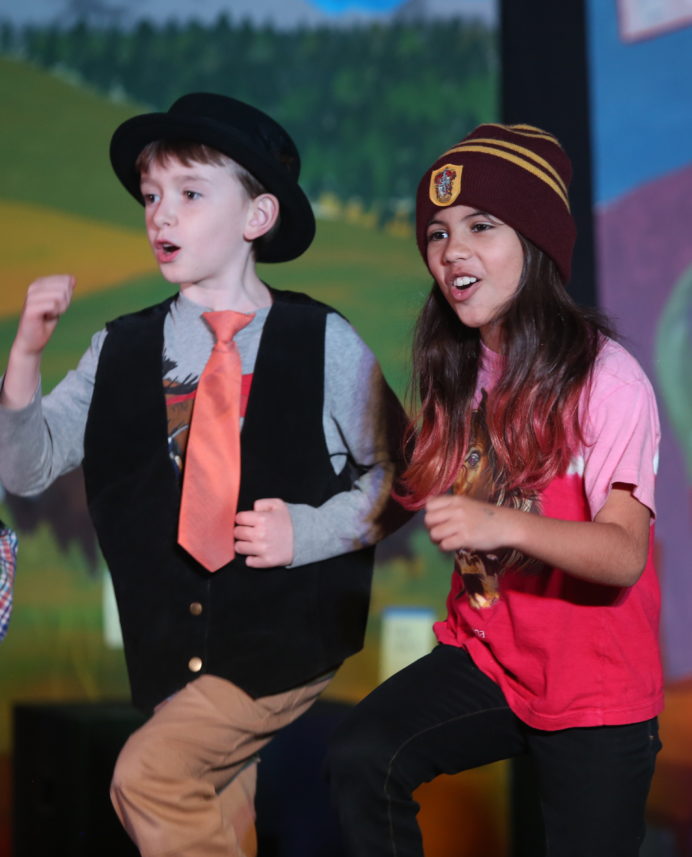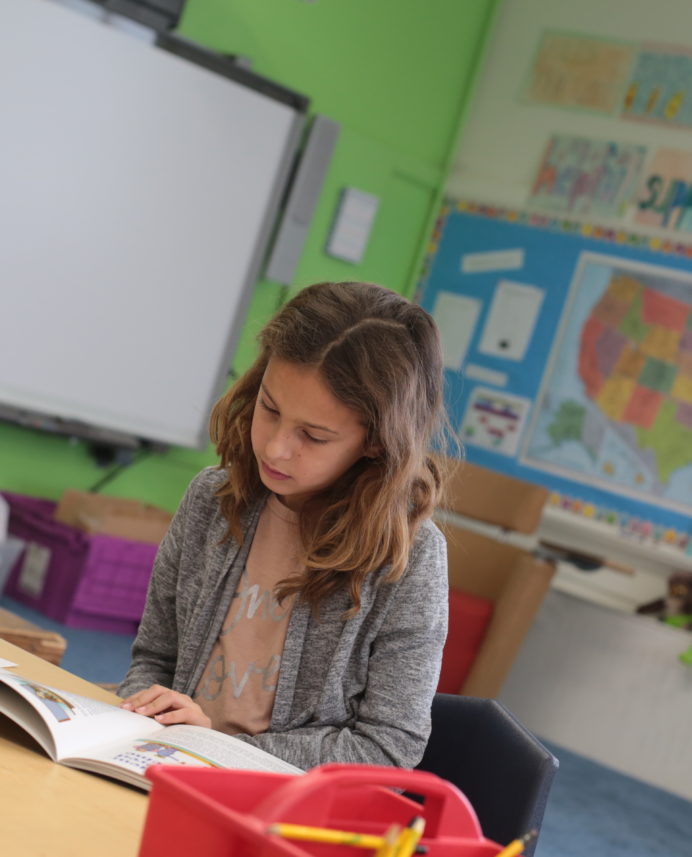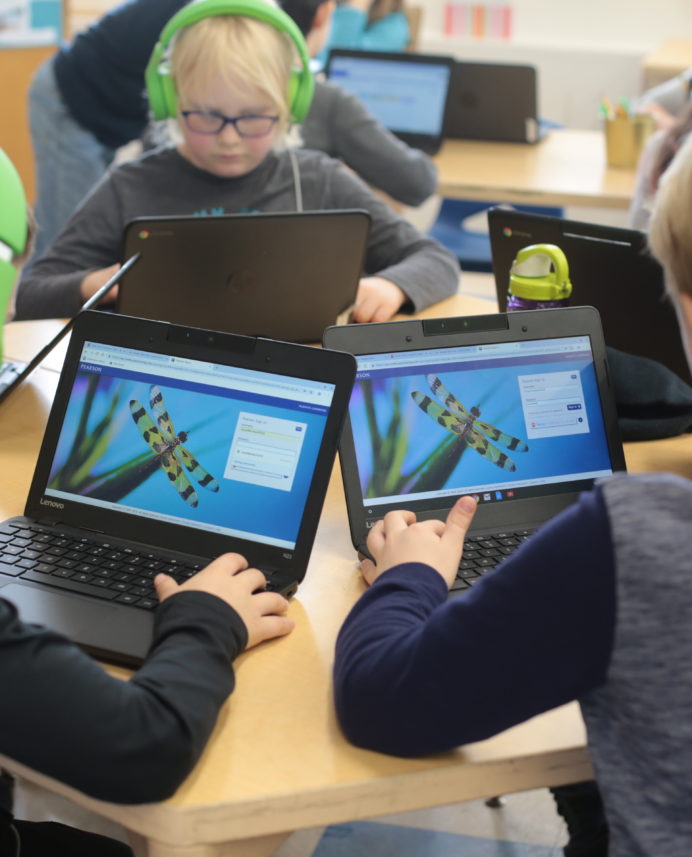Third and fourth graders are beginning to assert their independence and leadership skills within the school community. Through sharing ideas and opinions, learning mediation skills, and working collaboratively on research projects, students play an important role in creating a stimulating and respectful classroom community. The days offer increasing opportunities for self-discovery and expression, including a weekly dedicated arts block during which students learn alongside professional artists and musicians. Students perfect their reading and writing skills through small, cooperative literacy stations, writing  workshops, poetry studies, small reading groups, and story publishing. They work on math challenges that require critical thinking and organization, learn about electric circuits and food chemistry, learn about the perspectives of indigenous people and colonists during the time of the formation of states, and perform in RISE, the Upper Elementary chorus. Third and fourth graders are key contributors in a world that is expanding every day—with the knowledge and skills they acquire, as well as with an understanding for their important role and influence in a broader community.
workshops, poetry studies, small reading groups, and story publishing. They work on math challenges that require critical thinking and organization, learn about electric circuits and food chemistry, learn about the perspectives of indigenous people and colonists during the time of the formation of states, and perform in RISE, the Upper Elementary chorus. Third and fourth graders are key contributors in a world that is expanding every day—with the knowledge and skills they acquire, as well as with an understanding for their important role and influence in a broader community.
Learning Looks Like This
The sound of makeshift dice hitting the table is also the sound of a new level of attention. A student calls out, “Adverb!” Three other students search frantically on their Bingo boards for a word one of them describes as, “…a word that ends in ly.” Another explains, “It’s a word that tells how often or how much you do something. Like, I usually go to a friend’s after school.”
Moving to another table, pairs of students have swapped spelling cards and are checking on each other’s progress. A friend reminds, “It’s got an ‘ed’ on the end.” A chart of the words from the week’s spelling patterns (ight, ought, aught) hangs off to one side. In a quieter area, a reading group has just finished Kate and the Beanstalk. Students are deep in thoughtful conversation, comparing the story’s heroine, Kate, to the Jack with whom they are all familiar. The children take turns recording their ideas on a Venn Diagram. One child wonders, “Were there any older fairy tales with girls as the strong main character?” At the computers, a child practices sight words in an animated game. Sitting in another corner of the room, students are working individually to organize strips of paper. They thoughtfully move the sentence strips around to create cohesive and ordered paragraphs before typing them into their laptops. The light blinks suddenly, signaling that the class period is about to end, and a student gives a five-minute warning. Classmates quickly finish the last details that they don’t want to put off until tomorrow.
Joyful Learning at Lesley Ellis
|
|
|
Grade Level Highlights

Theater and the Classroom

Bringing History to Life
